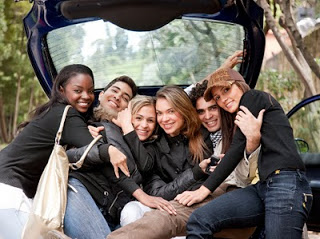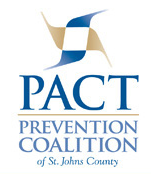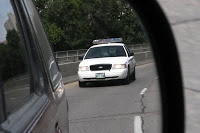
Five Important Reminders for Teen Drivers
January 3, 2011
Teaching teens how to drive is only the first step of becoming a safe driver. To become confident and competent behind the wheel it is important that they learn defensive driving strategies. Whether they have just received their license or have been driving for a year, defensive driving school is an opportunity to brush up on the rules of the road. Even though teens as new drivers are starting off fresh, as new learners, sometimes they need a little reminding.
Here are five important reminders for teen drivers:
- 1. Failing to prepare is preparing to fail. Surveys conducted by several driving safety organizations have yielded the same result: teen drivers think that they are better drivers than other drivers. Preparing to drive means preparing the vehicle for safety and mentally preparing the driver to be focused on driving, and nothing else, when a teen driver gets into the driver’s seat.
- 2. Seeing signs. Ever notice those things by the side of the road sometimes? Those are meant to be followed. Speed limits are put into place not by some arbitrary decision: road engineers have taken the time to study traffic flow in an area to determine by which speed it is best to drive at.
- 3. Undertakers love over takers. It’s easy for a teen driver to lose his or her cool when another driver cuts them off, or overtakes them. Some motorists go so far as driving fast to catch up to the drivers who did it to them. Simple advice: let them go on. It’s not a race and it’s not worth the risk of a ticket or crash.
- 4. Distraction is two letters away from destruction. A teen driver may feel that they can ABSOLUTELY do something else while driving, while statistics and surveys often prove otherwise. Surprisingly, teen drivers fail to acknowledge that having other teens in the car is one of the biggest distractions from driving. Eat/text/call/change tunes BEFORE starting the car.
- 5.Drinking, drugging and driving DO NOT mix. That goes with prescription drugs and over-the-counter medications that may impair driving ability too. Teen drivers often underestimate the effects of alcohol, and what they don’t know is, when they get a DUI, it haunts them for a long time. It follows them when they look for jobs; apply for scholarships or when they are going to pay for car insurance. Not to mention that it also puts themselves and other motorists at risk.
If you area teen or know a teen, share these important reminders for safe driving, Driver education is continuing education, especially during the teen years.

Teens New Year Resolutions to be a Safer Driver
December 29, 2010
When ringing in the New Year, millions of people decide to make what has become to be known as New Year’s resolutions. Many people will make a commitment to losing weight, to quit smoking cigarettes, do better in school, get out of debt, or join a fitness club. The sad part of making these resolutions is they are often very hard to keep and people often fail within the first few weeks or months of trying.
There is one New Year’s Resolution that can be achieved by teens and that is becoming a safer driver. It’s easy to achieve because licensed teenage drivers are in their vehicles every day giving them the opportunity to stick to their resolution.
In today’s world of driving, drivers are multitasking when behind the wheel. According to the Safe Driving Institute:
- 77% of drivers admit to talking or texting while driving
- 60% admit to eating while driving
- 50% admit to making obscene or rude gestures or comments to other drivers, particularly those who cut in front of them
- 50% admit to almost falling asleep while behind the wheel
- And there are countless teens getting behind the wheel of their vehicle drunk, high or buzzed.
Making a New Year’s resolution to eliminate the above while driving isn’t difficult to incorporate into your daily driving habits. Let’s look at a few:
- Ditch the cell phone because using a cell phone or texting while driving can be as dangerous or deadly as drunk driving. One way of doing this is to keep your cell phone far enough away that you will not be tempted to use it. Keep it turned off and let all messages go to voicemail to be listened to later. You can also purchase a cell phone blocker to block calls and/or texts while the vehicle is in motion, Only use a cell phone when driving for emergencies.
- Drive within the posted speed limit. When you speed you are increasing the chances of you getting into a crash, injuring or killing yourself or others. Don’t be a follower and speed alongside everyone else. Be a leader and show others you obey the law.
- Fast food is often a teens lifeline but not while you are driving. If you need a snack, go through the drive-through, get your food, park, eat and then continue your journey.
- Always look when entering a lane of traffic or passing another car. Get into the habit of using your turn signals and side-view mirrors and don’t forget those inexpensive “blind-spot mirrors“ can make the difference of getting into a crash or not.
- When someone cuts you off, take a deep breath, count to ten and let it go. Road rage accomplishes nothing except putting you in danger of a crash while you try to catch up to the other driver.
- Wear your seatbelt. Not because it’s the law, but because it will save your life.
- Study for your school tests at home, not while driving to school. Reading while driving is the second most common distraction while driving after the cell phone.
- Always remember drinking, drugging and driving don’t mix. One beer or a hit from one blunt can negatively impact your driving skills. If you plan on partying with alcohol or other substances, make sure you use a designated driver. Also remember that in all 50 states in the United States the legal age to consume alcohol is 21 and using illegal drugs such as marijuana is illegal.
- Finally, take a defensive driving course every couple of years. It’s always good to have a little refresher course and find out what changes have been made in the traffic laws and road conditions.
Remember, driving is a privilege and with a privilege comes responsibility and accountability. So make sure your New Year’s resolutions include becoming a smarter and safer driver. It’s an easy one to incorporate into your daily living and will help you survive on the road.
Happy New Year and Safe Driving!

Do You Know the Law?
December 10, 2010
Do you know what is considered to be legal verses illegal? Do you know what the consequences are if you break the law? Is it a fine, jail time or some other penalty? Many people get so busy with their daily lives that they don’t keep up-to-date on new laws or share with family and friends their knowledge of the laws that they are familiar with. Although sometimes, people innocently think they are sharing information, they may unknowingly share information that is false or outdated.
Ignorance of the law is not a justifiable excuse for breaking the law. In so many situations, it is easy to react without considering the consequences. Learning about the laws in your state will not only help you to be more aware personally, the knowledge you gain can be shared with family and friends to help prevent negative situations from occurring.
Fortunately, several groups of civic minded community members are collaborating together to help educate the public on the laws and consequences in their community. These groups come from the sectors of law enforcement, judicial, education, prevention, and treatment and include agencies, services and advocates.
One such group is PACT Prevention Coalition of St. Johns County. The coalition is comprised of groups of people from diverse disciplines in the community including members who represent: youth, parents, education, business, government, faith-based, media, law enforcement, substance abuse/mental health providers, youth serving agencies, healthcare, civic/volunteer groups, and community residents. The goal of these coalitions is to create safe, healthy and drug-free communities and in turn, making them better places to live. They strengthen the community and its members with technical assistance and training, public policy, media strategies and marketing programs, conferences and special events. Heidi Matheny, Coalition Coordinator for PACT Prevention Coalition is currently compiling a booklet to be given out at the local high schools and colleges. Heidi said ”We wanted to enable and encourage youth to make empowered decisions by taking the time to know and understand the laws while weighing the consequences of their behaviors. This booklet is also intended as a tool for parents.”
The booklet is going to print and the PACT Prevention Coalition is looking to distribute 30,000 copies from this first printing.
Some items that are covered include:
- Crime Defined
- Principal Theory
- Alcohol
- Tobacco
- Parties
- Computer Crimes
- Mandatory Consequences
Many others topics are also included such as potential future obstacles and local resources to contact.
Take time to check in your community to see if this type information is available. In St. Johns County you can go to the website at www.pactprevention.org, click the contact link and request your copy. Join other civic mind people to help make our communities the best they can be.

Be Aware of “Black out in a can” or “Liquid Cocaine?”
December 2, 2010
Lately, there has been much attention given to a new version of alcoholic drinks that are gaining popularity. The specific brands cited are Four Loko, Joose, Max and Torque combine large does of alcohol with caffeine. These drinks are marketed to youth, with colorful packaging and flavors including grape, fruit punch, watermelon, and lemonade. Four Loko is said to contain the alcohol equivalent of up to five beers (12 percent alcohol) and the caffeine of one cup of coffee plus a can of Red Bull. The caffeine buzz delays the ability to feel the effect of the alcohol or monitor their body’s response. Before the drinker is aware, they have consumed several beers at once and are on a caffeine high, increasing the likelihood of alcohol poisoning. Because alcohol poisoning is so frequent after drinking these drinks, the term “black out in a can” has become a common nickname for these alcohol energy drinks.
These drinks first caught the attention of doctors, hospitals, police, and government officials as they began to warn the public of the dangers the drinks pose and tried to force changes in packaging, warnings and content. The containers look attractive and to the unknowing eye could easily mistake the beverage for an energy drink. The terms “liquid cocaine” or “cocaine in a can” are also used as slang for these drinks, because of the high amount of caffeine, taurine and guarana. The risk of caffeine intoxication is high and symptoms after consuming the drink include restlessness, increase in blood pressure, heart rate and heart palpitations. Emergency Room doctors report that patients are coming into hospitals drunk and also complaining that their hearts are pounding out of their chests.
But now, the alarm level has risen, as college and university campuses across the United States are banning the drinks as well. The University of Florida conducted a study published in the journal Addictive Behaviors. The study found that of the patrons exiting bars, those who drank energy drinks mixed with alcohol were three times at risk of leaving a bar highly intoxicated and were four times more likely to intend to drive after drinking than bar patrons who drank alcohol only. “There’s a very common misconception that if you drink caffeine with an alcoholic beverage the stimulant effect of the caffeine counteracts the depressant effect of the alcohol and that is not true,” said study co-author Bruce Goldberger a professor and director of toxicology in the UF College of Medicine. “We know that caffeine aggravates the degree of intoxication, which can lead to risky behaviors.” ABC News interviewed Doctor Mary Claire O’Brien of Wake Forest University on the study she conducted on the effects of combining alcohol and caffeine. Her results showed that students who mix caffeine and alcohol are “twice as likely to be injured, require medical attention, ride with an intoxicated driver, and more than twice as likely to take advantage of someone sexually.”
Colleges are not the only ones to feel the effects. Nickie Gorce, Director of Prevention with EPIC Community Services, has seen a large increase in alcohol-related referrals to her agency. Many of the referrals are for youth and young adults under the legal drinking age of 21. “Their impulsive behavior after consuming these types of drinks would appear to be out of control, which is frequently the result when adolescents or young adults binge drink (5 or more drinks in rapid succession). The increased risk taking behavior such as driving under the influence is an unintended outcome when individuals consume alcohol energy drinks. In addition, the Blood Alcohol Content (B.A.C.) level after consuming just one of these beverages like Four Loko may be twice the legal limit.”
With both the alcohol and caffeine being diuretics, dehydration is another real risk leading to other health complications as well, including a terrible hangover. When the intoxication effects wear off, not only do you have a crash from the high doses of alcohol, there is also a caffeine crash that occurs with most people.
Several states, including Michigan, Washington, Utah, Oklahoma and New York have banned the sale of these drinks and some vendors are voluntarily removing them from the shelves. As the safety concerns mount, the Food and Drug Administration has been reviewing the products and has stated they want the drink in its current state to be removed from shop shelves by December 13.

Answering Driving Questions from Yahoo! Answers: Florida Traffic Ticket Edition
November 24, 2010
Yahoo! Answers is a great way to get your questions answered through the large community of Yahoo. In this series of articles, we will tackle questions that are asked on a weekly basis about driving in Florida. We will focus on traffic tickets for this article. Whether the question is on the ticket itself or on the process of receiving a ticket in Florida and finding out your available options, these are some of the most frequently asked questions about traffic tickets and their answers. Odds are you’ve probably come across these questions or variations on them.
Q. “Should you wait for the mail notification before you do something about your ticket?”
A. No. Any Florida driver that receives a traffic ticket, including a speeding ticket, has 30 days to select an option for satisfying their citation. One way for a driver to determine what their options are for satisfying a pending ticket is by checking the website of the county where the citation was received. Offenders can accept the points on their licenses, request a court date, or, if eligible, attend traffic school to prevent points from being assessed on their license.
Q. “When you opt for traffic school, does it remove points from your driving record? Do you still have to pay for the ticket?”
A. If the option is available for a driver after receiving a traffic ticket and they are eligible, then traffic school will prevent the points from being applied to an individual’s driving record. And yes, the driver still has to pay for the ticket.
Q. “If I get a ticket while visiting another state, will it apply in my home state?”
A. Yes. Though different states have their own DMV office, a driver’s home state DMV will be notified if a ticket has been issued from a different state. What will usually happen is the driver will be required to settle the ticket in the county where the citation was originally from. The penalties that will apply will also refer to the laws from the state where the ticket was received. Including traffic school: if the driver elects to attend traffic school to clear the points, he will have to attend one that the county where the ticket was issued will accept.
While most people want to avoid a traffic ticket, it is helpful to know a little bit about how the process works. Remember it is best to take care of a traffic ticket early. Failing to pay for a traffic ticket, or not completing the requirements of traffic school will cause your drivers license to be suspended and can cause warrants for your arrest.
Learn more about Florida online traffic school to dismiss your traffic ticket.
